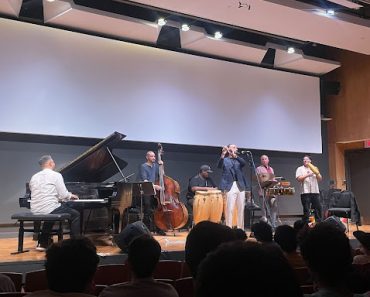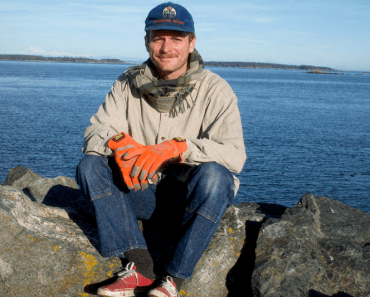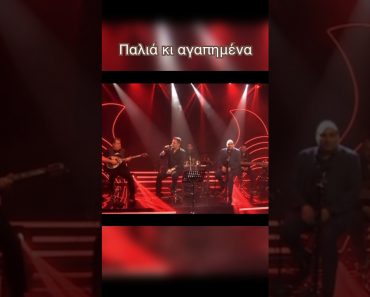Orpheus uses his musical talents to charm the rulers of the underworld, Hades, god of the dead, and his wife, Persephone. Hades permits the pair to return to the land of the living on condition Orpheus walks ahead and does not look back at Eurydice as they return.
Alas, perhaps subsumed by fear, or perhaps by his intense love for Eurydice, Orpheus does look back. Cue utter desolation.
“It’s a sad song, but we sing it anyway.”
Yet Hadestown – written by Mitchell and developed and directed by Rachel Chavkin – is a toe-tapping, heart-swelling, epic poem of a show. Set between a Depression-era New Orleans basement jazz bar and the unrelenting furnace room of Hades’ factory, its tale follows both Orpheus and Eurydice’s love story and Hades and Persephone’s strained relationship.
Once passionate lovers, the latter pair’s marriage is swamped in distrust and resentment. Persephone prefers visiting the upper world to dance and drink (and bring spring to the freezing earth) while Hades wants her at his side, a caged bird.
Elenoa Rokobaro, who plays Persephone in the Australian production and is known for leading roles as Billie Holiday in Lady Day at Emerson’s Bar and Grill (STCSA/Belvoir/MTC) and Nellie Small in Send for Nellie (Sydney Festival), says she definitely relates with some of her character’s frustrations.
“I’m in my mid-30s and I know what it’s like to be loved and to not be loved and to fight for love,” she says. “Hadestown is about hope and love. The love between Persephone and Hades is reignited, but it also shows what doubt looks like within relationships.
“Persephone sees herself in Orpheus. She sees that he has such a hopeful heart, that he might not have a lot, but he knows this love with Eurydice is priceless.
“That’s what she fights for with Hades.”
Hadestown, which developed from a low-budget 2006 community theatre project in Vermont to a 2010 concept album called Hadestown with Justin Vernon of Bon Iver as Orpheus and Ani DiFranco as Persephone, was initially inspired by a children’s book of Greek mythologies Mitchell read, along with two 1950s films Orphee and Orpheus.
Mitchell says its evolution into a show that has won eight Tony Awards came after a “crash course” in what it is to write dramatically.
‘I think you have to be obsessed to make musicals. They simply take so much time and effort and patience.’
Hadestown writer, Anais Mitchell
“It was like grad school,” she says. “My director, Rachel Chavkin, was a ferocious and loving headmistress. If something wasn’t working or earning its keep dramatically, she was always the first to put her hand up. I learned how to write dialogue, which in Hadestown is rhymed and metered, and how to write songs that felt like they contained results or revelations or both. “I like to think I’d use all that learning again if I ever wrote another musical.”
She misses the small village of artists she collaborated with over years. “It was so stressful and I also miss the hell out of it,” she says. “I miss the tiny breakthroughs, the little a-ha moments where we all knew we had made the thing 1 per cent better. I miss the late-night production meetings and post-production meetings at the bar across the street of wherever we happened to be working.”
Because Hadestown is almost entirely sung-through, with a rollicking and stirring live band on stage throughout, Mitchell says the spell of music is never broken.
“I always loved sung-through musicals like Les Miserables, Hamilton, Sweeney Todd to some extent,” she says. “I guess it’s because I’m a musician myself and I love to dwell in that rarified ethereal space that music creates and never be brought down to earth by a book scene. For Hadestown, which exists in a kind of dreamscape that is not meant to be tethered to one particular time or place, it feels very right to stay in the realm of music.”

The cast of Hadestown.
Mitchell is also part of a more rare realm. When the musical opened in New York City in 2019 she was only the fourth woman to have composed the lyrics, book and music of a Broadway show.
She is proud to represent women in an underrepresented sphere and grateful to have had so many women on the team, including director Chavkin and two lead producers Mara Isaacs and Dale Franzen.
“[I’m] also grateful for the many brilliant and sensitive men we worked with,” she says. “I guess I identify more as a writer than as a woman, if that makes sense. I chose Rachel as a director not because she’s a woman but because I was obsessed with her work.
“In fact, we both are obsessed with our work, whatever it is we’re working on at a given time, and I think you have to be obsessed to make musicals. They simply take so much time and effort and patience. I feel a mystical kinship to writers and artists everywhere, the obsessed ones.”
Mitchell is delighted to be told Sydney audiences began bringing cups to hold aloft in solidarity with cast members doing the same in We Raise Our Cups, the show’s last song.
Loading
“God, I deeply love Australia,” she says. “I just got a chance to tour over there with my folk rock band, Bonny Light Horseman, and was so smitten by the culture, the natural beauty and what felt like a commitment to ‘the good life’, in Melbourne and Sydney both.
“I’m grateful the show connects with Australians because it’s really for everyone. Everyone who loves music, everyone who falls in love with other people and with the world, everyone who can see the way the world could be and also comes up against the way it is.”
Rokobaro, who became aware of audiences raising their cups, is equally floored.
“My heart broke,” she says. “It’s just the most beautiful, magical moment. It felt like we were partying with everyone at the end, receiving your gift.
“Honestly, this cast is so ready for Melbourne audiences too. A lot of people came from Melbourne to see the Sydney season so hopefully we’ll see them again.”
For fans hoping Mitchell creates new work in the vein of Hadestown, there is news. She is in the early stages of a new theatre project. But, it’s not a musical.
“It’s a play with music,” she says. “I’m working on the songs with some very dear collaborators. I’m not quite ready to say their names as it’s all in a rather wet-clay state.
“The play I’m writing myself, which is terrifying and exhilarating. Words without music, that is. Words that don’t rhyme. What a concept!”







